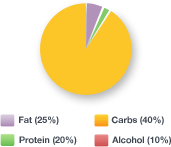
Google uses cookies and data to:
- Deliver and maintain services, like tracking outages and protecting against spam, fraud, and abuse
- Measure audience engagement and site statistics to understand how our services are used
About Press Copyright Contact us Creators Advertise Developers Terms Privacy Policy & Safety How YouTube works Test new features Press Copyright Contact us Creators. FitDay is a proud supporter of Elevacity, a company that elevates your health, wealth and happiness through patented and powerful nutritional products, coupled with life changing virtual success training, you can be on your way to a new and rewarding you.
- Improve the quality of our services and develop new ones
- Deliver and measure the effectiveness of ads
- Show personalized content, depending on your settings
- Show personalized or generic ads, depending on your settings, on Google and across the web
Click “Customize” to review options, including controls to reject the use of cookies for personalization and information about browser-level controls to reject some or all cookies for other uses. You can also visit g.co/privacytools anytime.
In the early theories of learning, it was believed that complex higher-order thinking skills were acquired in small pieces, breaking down learning into a series of prerequisite skills. After these pieces were memorized, the learner would be able to assemble them into complex understanding and insight -- the puzzle could be arranged to form a coherent picture.

Today, we know learning requires that the learner engage in problem-solving to actively build mental models. Knowledge is attained not just by receiving information, but also by interpreting the information and relating it to the learner's knowledge base. What is important, and therefore should be assessed, is the learner's ability to organize, structure, and use information in context to solve complex problems.

'Assessment should be deliberately designed to improve and educate student performance, not merely to audit as most school tests currently do.' -Grant Wiggins, EdD., president and director of programs, Relearning by Design, Ewing, New Jersey
Standardized Assessment
Almost every school district now administers state-mandated standardized tests. Every student at a particular grade level is required to take the same test. Everything about the test is standard -- from the questions themselves, to the length of time students have to complete it (although some exceptions may be made for students with learning or physical disabilities), to the time of year in which the test is taken. Throughout the country, and with the passage of the Elementary and Secondary Education Act, commonly known as the No Child Left Behind Act (which requires research-based assessment), student performance on these tests has become the basis for such critical decisions as student promotion from one grade to the next, and compensation for teachers and administrators.


Standardized tests should not be confused with the standards movement, which advocates specific grade-level content and performance standards in key subject areas. Often, in fact, standardized tests are not aligned with state and district content standards, causing considerable disconnect between what is being taught and what is being tested.
In the spring of 2009, an initiative was created to develop a set of standards for all states in the United States to adhere to. The Common Core State Standards Initiative (CCSS), as it has become known, is still an evolving movement. The vast majority of states have pledged to adopt the standards and implement them by 2015. Standards for English language arts and mathematics were published in 2010, while standards for science and social studies are still in development. Visit Edutopia's Common Core State Standards Resource page for more information about the standards.
The questions then become: What is evidence-based assessment? Is it standardized tests? Is it portfolios? If portfolios are a part of evidence-based assessment, what else is necessary? Reflections? Work samples? Best work?
'If assessment is to be a positive force in education, it must be implemented properly. It cannot be used to merely sort students or to criticize education. Its goals must be to improve education. Rather than 'teach to the test,' we must 'test what we teach.' -Lockwood and McLean
Alternative Assessment
Alternative assessment, often called authentic, comprehensive, or performance assessment, is usually designed by the teacher to gauge students' understanding of material. Examples of these measurements are open-ended questions, written compositions, oral presentations, projects, experiments, and portfolios of student work. Alternative assessments are designed so that the content of the assessment matches the content of the instruction.
Effective assessments give students feedback on how well they understand the information and on what they need to improve, while helping teachers better design instruction. Assessment becomes even more relevant when students become involved in their own assessment. Students taking an active role in developing the scoring criteria, self-evaluation, and goal setting, more readily accept that the assessment is adequately measuring their learning.
Authentic assessment can include many of the following:
- Observation
- Essays
- Interviews
- Performance tasks
- Exhibitions and demonstrations
- Portfolios
- Journals
- Teacher-created tests
- Rubrics
- Self- and peer-evaluation
Fitdays App Delete Entry
Visit our Comprehensive Assessment Core Strategy page to learn more. You can explore the latest research about assessment on our Comprehensive Assessment Research page.
You will also find lots of great information in Edutopia.org's 2008 in-depth package on authentic assessment, Reinventing the Big Test: The Challenge of Authentic Assessment.
Continue to the next section of the guide, How Do Rubrics Help?
This guide is organized into six sections:
Fitdays App For Windows

Fitday.com Login
- Types of Assessment
